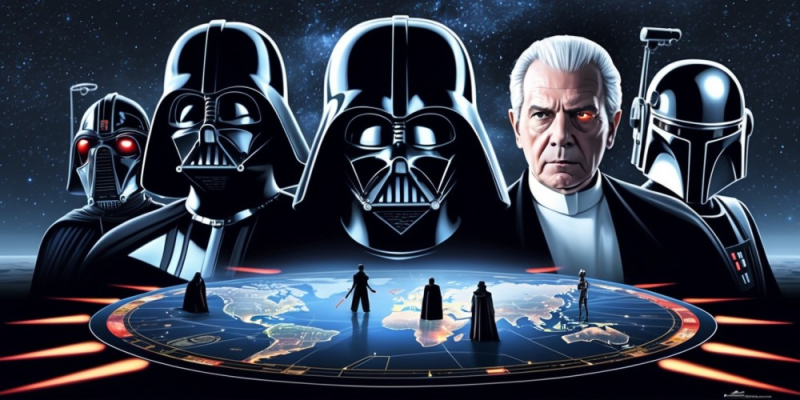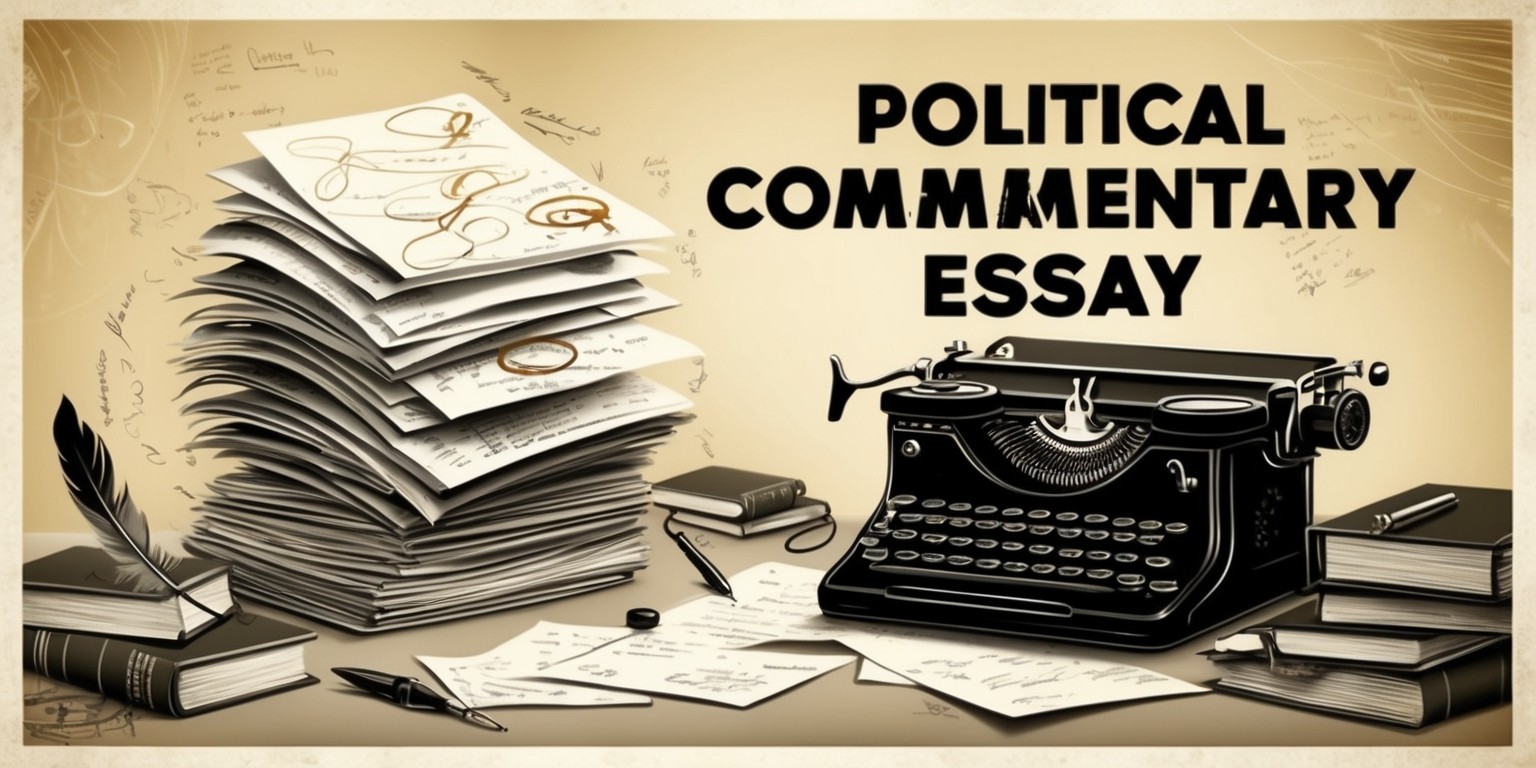
- 02 Dec 2024
Galactic Parallels: Examining the Political Shadows of Power through Star Wars Narratives
In the realm of pop culture, where fictional narratives often reflect real-world complexities, few comparisons spark fascination like that between political figures and iconic characters from the Star Wars universe. George Lucas, the visionary behind this beloved franchise, inadvertently ignited debate when he likened George Bush to Darth Vader, a statement that reverberates through both political and cinematic discourse. This perspective not only challenges conventional viewpoints but also highlights the layered intricacies of a modern political landscape that many still grapple with today. By diving deep into this conversation, we unravel the implications behind Lucas's thought-provoking assertions and explore how power dynamics in politics can mirror the timeless tales told across galaxies far, far away.
Understanding the Connection
Often, it is humor and hyperbole that shape our understanding of political figures. When George Lucas tagged George Bush as Darth Vader, he wasn't merely tossing around a dramatic title. This assessment was laden with cultural references that framed Bush within a narrative of conflict and authoritarianism, characteristics emblematic of the notorious villain.
George Bush's Portrayal
Linking a sitting president to a character like Darth Vader elicits strong emotional responses. With the image of Vader permanently etched in pop culture as a tyrannical figure, it raises inquiries regarding Bush's policies and leadership style, particularly during times of war and unrest.
The Influence of Darth Vader
Darth Vader represents more than just villainy; he symbolizes the darker undercurrents of ambition and control. In an environment where political figures frequently maneuver murky waters, the metaphor resonates. Lucas’s mention of Bush evokes questions about the ethical implications of presidential decisions and their reverberating consequences on global peace.
The Role of Dick Cheney

Within this discourse, the figure of Dick Cheney emerges prominently. Lucas suggested that while Bush embodied the characteristics of Darth Vader, Cheney more aptly represented the Emperor—a puppeteer wielding considerable influence from the shadows. This portrayal reflects public perceptions of Cheney's substantial role in shaping U.S. foreign and domestic policies.
Public Perception of Cheney
Cheney’s legacy is complex. He often faced criticism for promoting war in Iraq and implementing policies that expanded executive power. Many critics argue that his decisions were driven by self-interest rather than national welfare, leading to widespread discontent among citizens.
Backstage Politics Unveiled
Intriguingly, Cheney’s impact went largely unnoticed for years, hidden behind the curtain of traditional political discourse. However, as his controversial approaches came to light, discussions about moral accountability and leadership integrity became unavoidable.
Maureen Dowd's Insights
Renowned columnist Maureen Dowd contributed to the conversation surrounding Lucas’s comments. Her inquiries about Cheney's parallels to Vader sparked discussion, suggesting that perceptions of him as a villain were pervasive. This dialogue emphasized how political narratives intertwine with public sentiment.
The Power of Narrative
One of the enduring lessons from Lucas's films is the power of narrative. The ability to see political figures reflected in iconic characters aids in contextualizing complex realities. This mirroring effect highlights how stories shape our understanding of authority and governance.
Cultural Resonance through Film
As audiences, we are drawn to the dramatic parallels between film and life. Characters like Vader become lenses through which we analyze real-world figures, allowing us to process global events with a sense of familiarity, albeit through the veil of fiction.
The Voice of Authority
James Earl Jones, the legendary voice that brings Darth Vader, adds another dimension to the discourse. His involvement in politically charged artistic works emphasizes the critical interplay between entertainment and politics. By witnessing how storytelling can influence public discourse, one gains insights into the moral obligations of artists.
Connections with History
The interplay between American politics and film history highlights societal shifts over decades. The rising influence of cinema parallels the evolution of political narratives, shaping the perceptions of leaders in ways that traditional media struggles to achieve.
Examining War and Governance
The backdrop of war provides fertile ground for stories of power and resistance. Lucas's comments raise larger questions about the moral character of leaders during times of conflict, as tyranny and authority echo through history, resounding in the narratives we choose to tell.
Legacy and Reflection
The critique of political figures often forces society to contemplate its principles and priorities. In likening Bush to Vader and Cheney to the Emperor, Lucas invites us to scrutinize the characters we elevate to leadership positions and consider the ethical implications of their actions.
The Artistic Lens on Politics
Films like “Vice” bridge the gap between entertainment and political commentary, illustrating the rise of figures like Cheney. Artistic interpretations challenge audiences to engage with historical events more critically, fostering a deeper understanding of contemporary issues.
The Ongoing Conversation
This exploration of Lucas’s assertions raises more than questions about individual politicians; it opens discussions on governance, ethics, and public trust. Are our leaders mere puppets in a grand political theater, or do they genuinely strive for the betterment of society?
Pondering the Future
As we navigate an ever-evolving political climate, the narratives we embrace and propagate will continue to influence how we perceive our leaders. The adventures and misadventures of those we elect will resonate through stories, urging us to remain vigilant in our quest for truth within the complex web of politics.
Ultimately, exploring the interplay between fiction and reality illuminates the paths our societies tread. By examining the parallels between iconic characters and political figures, we obtain revelations about the essential characteristics of leadership and the responsibilities that accompany power. Just as rebellions formed against tyranny in far-off galaxies, so too must we remain ever watchful in our quest for fairness and ethical standards in governance.

0 Comments
Leave a comment
Your comment is awaiting moderation. We save your draft here